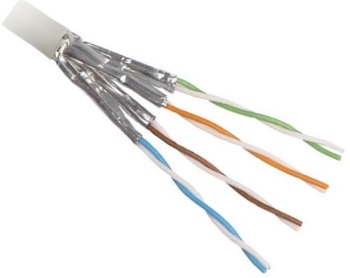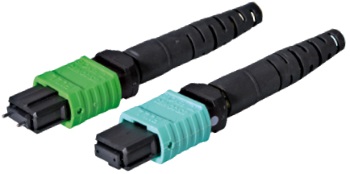Network Cabling and Installation
By Michael Stones
Have you ever wondered what it is that connects computers and networks to one another?
Network cable in conjunction with the associated hardware (network switches, hubs, demarcation
equipment) is responsible for computers being able to connect and transfer data across
intranets (internal network) and the internet.
Network cabling today is used for many other purposes besides computer networking. It can
be used to carry video for security camera systems as well as video for cable TV and AV
(Audio/Visual) applications. Network cabling is also used as control cable in Building
Maintenance Systems and Access Control Systems.
There are several different types of cables that are used for this purpose, including
unshielded twisted pair, shielded twisted pair, fiber optic and coaxial. In some cases,
only one type of cable is used in a network, while in other cases, many different types are used.
Wireless systems are becoming more and more popular but always remember you still
need network cabling for the wireless system. There is still two things that make network
cabling better than a wireless network: it is much more secure and reliable.
Understanding Cable Type
Before you can really understand how cable networking works, you need to know about
the various cables and how they work. Each cable is different, and the type of cable used
for a particular network needs to be related to the size, topology and protocol of the
network. Here is a rundown of the cables that are most commonly used for network cabling:
Unshielded/Shielded Twisted Pair

This is the type of cable that is used for many Ethernet networks. There are four sets of
pairs of wires inside the cable. There is a thick plastic separator that keeps each pair
isolated through the run of cable. Each pair of wires are twisted so there will be no
interference from other devices that are on the same network. The pairs are also twisted
at different intervals so they will not cause interference between themselves.
In an application where there is a lot of Electromagnetic Interference (EMI), such as a
mechanical space, you may choose to use shielded twisted pair, which has an outer shielding
that adds extra protection from EMI. Category 5e, 6, 6A and 7 are the general choices today.
Twisted pair cable is limited to 295' on a horizontal run. Twisted pair cable is used for
many applications.
Standard station cabling for computers and VOIP phones, wireless access points, network
cameras, access control and building maintenance systems are just a few. This is one of the
most reliable types of cables, and when used, network failures are less common than when
other cables are used.
Fiber Optic

Fiber optic cable is primarily used as backbone cable although it is being used more and
more as station cable (think FIOS). By backbone cable I mean it connects Telecommunication
Rooms within a space to each other. Fiber optic cable has huge broadband capacities which
allow it to carry large amounts of information as super fast speeds. Fiber cables can cover
great distances(hundreds of meters) as opposed to copper cable.
Because these cables must work so hard and the information travels such distances, there
are many layers of protective coating on fiber optic cables. Fiber cables transmit light as
opposed to electrical current. Fiber optic cable requires much less power than high speed
copper does. Fiber optic cable is a great choice for high speed reliable communications.
| 
